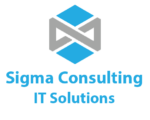What is a Learning Management System
- Sigma Consulting
- January 25, 2023
- 12:17 pm
A Learning Management System (LMS) is a software application that enables the administration, documentation, tracking, reporting, and delivery of educational courses, training programs, or learning and development programs. It is a platform that allows educators to create and deliver digital content, track student progress, and manage communication all in one place.
An LMS typically includes features such as course creation and management, student registration and tracking, assignment and assessment tools, and communication tools such as discussion boards and messaging. It can also include multimedia elements, such as videos and interactive activities, to enhance the learning experience.
One of the main benefits of an LMS is its ability to provide access to educational content at any time and from any location, making it ideal for distance learning and online education. It also allows for automated tracking and reporting of student progress, making it easier for educators to monitor and evaluate student performance.
Additionally, LMS can also be used for corporate training and professional development, allowing companies to train their employees and track their progress. It also allows for easy collaboration and communication among instructors and students, as well as providing a centralized location for all course materials and resources.
LMS can vary in terms of their complexity and the range of features they offer. Some are more basic and focused on course management, while others are more comprehensive and include advanced features such as analytics and integration with other systems.
Overall, LMS is a powerful tool that can greatly enhance the educational experience by providing access to resources and facilitating communication and collaboration. It can be used in a variety of settings, including traditional classroom, online education and corporate training.



